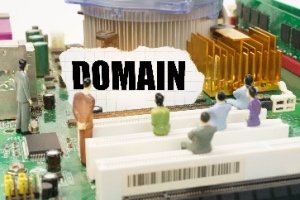
The future of domain names promises innovative solutions, transforming online identities and enhancing businesses' digital presence worldwide.
More...
In the constantly shifting world of digital technology, the significance of domain names is becoming increasingly vital.
Securing the right domain becomes crucial as businesses and individuals vie for online presence.
This post will explore emerging trends shaping the domain industry, from innovative technologies to market shifts.
We will delve into the progressive impact of blockchain and AI on domain registration and management.
Moreover, we will examine the impact of new top-level domains (TLDs) on branding strategies.
Understanding these developments allows you to stay ahead in the competitive digital arena.
The future of domain names is a topic that promises to redefine how we navigate the online world.
The Future of Domain Names: Insights
The landscape of domain names is swiftly transforming, propelled by technological innovations and user habit shifts.
New top-level domains (TLDs) are emerging, offering more choices for businesses and individuals. These options allow for greater creativity and specificity in web addresses.
In parallel, the rise of blockchain technology has introduced decentralized domain systems. These systems promise enhanced security and resistance to censorship.
Equally important, Artificial Intelligence (AI) also plays a significant role.
AI helps predict trends and suggest optimal domain names, making finding available and relevant domain names easier.
All things considered, the prospects for domain names look promising with innovations like new TLDs, blockchain technology, and AI.
How Technology Shapes the Future of Domain Names
The importance of voice search optimization is rising as more individuals utilize smart speakers.
Therefore, shorter and more intuitive domain names will gain importance.
With advancements in virtual reality (VR) and augmented reality (AR), these technologies are revolutionizing the landscape of domain names.
Consequently, these technologies are opening new avenues for interactive web experiences.
Through these innovations, cutting-edge technologies transform domain names into gateways to immersive environments, offering users a more engaging and dynamic online presence.
As a result, businesses can captivate their audiences, creating memorable experiences that foster deeper connections.
This evolution enhances user engagement and sets the stage for innovative marketing strategies.
By harnessing these technologies, companies can offer virtual tours, interactive product demonstrations, and real-time customer support within their domains.
Such levels of interactivity will drive innovation forward, enabling businesses to maintain a leading edge in an ever more competitive digital environment.
Trends Shaping the Evolution of Domain Names
The landscape of domain registration is evolving rapidly. Emerging technologies and shifting user behaviors are driving this transformation.
One significant trend is the rise of new generic top-level domains (gTLDs), which offer more creative and relevant options for businesses and individuals. These gTLDs provide opportunities for more personalized and descriptive web addresses.
Equally important, another trend is the increasing importance of search engine optimization (SEO).
For instance, domain names that include keywords can enhance SEO, making them more valuable.
Moreover, user experience is also a critical factor. Shorter, memorable domain names are becoming essential for brand recognition.
In light of this, mobile-first indexing by search engines emphasizes the need for responsive and mobile-friendly domains.
By understanding these trends, you will be better equipped to navigate the changing domain name ecosystem effectively.
The Impact of AI on Domain Names
Artificial Intelligence (AI) is revolutionizing the domain registration landscape. This technology enhances the efficiency of securing web addresses.
AI algorithms predict trends and suggest optimal domain names for businesses.
As a result, companies can secure relevant and memorable web addresses.
Furthermore, AI-driven tools analyze market data to identify valuable domain opportunities.
Therefore, these insights help investors make informed decisions, resulting in growth and innovation in the domain name industry.
Moreover, AI improves cybersecurity by detecting fraudulent activities early.
In turn, this advancement ensures safer online environments for users.
The outlook for domain registrations with continuous AI integration looks promising.
Emerging technologies will further streamline processes and enhance security measures.
Blockchain and the Future of Domain Names
Blockchain technology is revolutionizing the realm of digital addresses.
Conversely, traditional domain registration systems face issues like centralization and security vulnerabilities.
Blockchain offers a decentralized alternative that enhances security and transparency.
With blockchain, domain ownership records are immutable, reducing fraud risk.
Interestingly, this technology also allows peer-to-peer transactions, eliminating intermediaries and lowering costs.
Notably, blockchain domains can integrate seamlessly with other decentralized applications (dApps), creating new opportunities for innovation.
The shift to blockchain-based domains is already happening. For example, companies like Unstoppable Domains are pioneering this space. They provide blockchain domains that are resistant to censorship and hacking.
Undoubtedly, blockchain technology will redefine how we manage online identities by offering enhanced security, transparency, and innovation.
Ensuring Your Position in the Evolution of Digital Identities
The future of domain names is evolving rapidly. As internet usage grows, securing a unique domain becomes crucial.
To stay ahead, consider investing in premium domain names. These can enhance your online presence and credibility.
The digital landscape evolves rapidly, making domain names crucial for online presence.
Notably, this proactive step ensures your brand stands out in a crowded market. Transitioning to new domain trends can offer significant advantages.
Emerging technologies and innovative naming conventions shape the future. By embracing these changes early, you position yourself ahead of competitors.
Explore the advantages of a thoughtfully planned method for acquiring domains. Selecting an optimal name can significantly boost credibility and foster trust.
Equally important, it monitors trends in domain extensions and internationalized domain names (IDNs). Grasping these trends will empower you to make well-informed choices.
Significantly, internationalized domain names (IDNs) are breaking language barriers, allowing non-Latin characters in web addresses.
The Role of SEO in Future Domains
The evolution of internet identifiers is progressing rapidly, driven by advancements in search engine optimization (SEO).
As the internet landscape changes, businesses must adapt to stay relevant.
One notable development is the growing significance of domain names enriched with relevant keywords.
Therefore, these domains can boost visibility and improve click-through rates making them valuable assets for any business.
Companies that often invest in such domains see higher engagement from their target audience.
Meanwhile, new top-level domains (TLDs) are emerging, offering more branding opportunities.
For instance, industry-specific TLDs like .tech or .vegas can enhance a company's online presence.
Similarly, these specialized TLDs allow businesses to communicate their niche, attracting more relevant traffic.
Given the intensifying competition online, leveraging these new TLDs can give companies a competitive edge.
Thus, staying updated with these trends is crucial for long-term success in the digital marketplace.
New Regulations Affecting Domain Name Futures
New regulations are rapidly evolving the future of domain names and reshaping the landscape of digital identities.
Governments and organizations are implementing stricter rules to enhance security and transparency, so domain registration processes are becoming more rigorous.
Moreover, introducing new top-level domains (TLDs) offers businesses more opportunities for branding and marketing.
However, these advancements also come with challenges. Companies must stay updated with the latest policies to avoid potential legal issues.
Meanwhile, emerging technologies like blockchain influence how domains are managed and secured. This shift promises greater decentralization and user control.
Overall, staying informed about regulatory changes is crucial for anyone involved in the digital space.
Globalization and the Evolution of Digital Identities
Globalization continues to reshape the internet, influencing how we perceive and use domain names.
As businesses expand globally, they seek domain names that resonate universally.
Consequently, the demand for generic top-level domains (gTLDs) has surged.
Moreover, cultural diversity impacts domain name choices. Companies now prioritize localized domains to cater to specific markets.
Therefore, this domain strategy enhances brand recognition and fosters trust among local consumers.
Transitioning to such domains can also improve search engine rankings. Technological advancements drive changes in domain name trends.
Thus, the evolution of web addresses appears dynamic and ever-evolving.
Ultimately, the intersection of globalization and technology will continue to shape this landscape in unforeseen ways.
Legal Implications of the Future Domain Landscape
The progression of digital identities is evolving rapidly, bringing significant legal implications.
As new top-level domains (TLDs) emerge, trademark disputes and cybersquatting issues will likely increase.
Therefore, businesses must adapt to protect their intellectual property in this changing environment.
One critical aspect is the need for robust domain registration policies. These policies can help mitigate legal risks associated with domain ownership and usage.
Simultaneously, international regulations may become more stringent, impacting global domain strategies.
Grasping the intricacies of legal regulations is essential for steering through the emerging trends in domain names.
By staying updated on regulatory changes and implementing strong protection measures, businesses can safeguard their online presence effectively.
Investing Wisely in Tomorrow's Digital Real Estate
As technology progresses, fresh opportunities arise for investors. Acquiring insight into these trends empowers you to make well-informed choices.
Domain names are becoming more valuable, reflecting the increasing importance of a solid online presence.
In fact, companies are willing to pay a premium for memorable and relevant domains.
At the same time, emerging markets are expanding internet access, creating fresh demand for domain names. Investors should consider these regions for untapped potential.
Investing in domain names is akin to securing prime real estate in the digital world.
Hence, adapt to changes and leverage new technologies to maximize your returns.
Sustainability Practices in Domain Name Registration
The evolution of digital identifiers is not just about innovation but also about sustainability.
With the internet's expansion, data centers' environmental impact increased.
Subsequently, companies now prioritize eco-friendly practices in domain name registration. They aim to reduce carbon footprints through renewable energy sources and efficient cooling systems.
In addition, registrars are adopting green hosting solutions, significantly reducing the environmental footprint of maintaining web servers.
Sustainable practices are crucial for the domaining industry. By integrating green technologies, the industry can ensure a more environmentally friendly internet for everyone.
Security Challenges in Tomorrow's Digital Realms
The evolution of web identities brings both opportunities and challenges. As the internet expands, security concerns grow.
Cybercriminals are becoming more sophisticated, targeting domain vulnerabilities.
Consequently, protecting domains will be crucial. A significant issue is domain hijacking, which occurs when attackers gain unauthorized access to domain registration details.
Thus, more robust authentication methods are necessary to combat this increasing threat of cyber-attacks and data breaches.
Furthermore, phishing attacks exploit weak domain security. These scams trick users into divulging confidential information. Hence, organizations must implement advanced security protocols.
Additionally, DNS spoofing poses a threat by redirecting traffic to malicious sites. In contrast, enhanced encryption can mitigate this risk.
Therefore, the progression of digital addresses depends on robust security measures.

In the Final Analysis
The future landscape of domain names will undergo a revolutionary change propelled by cutting-edge technologies and shifting user patterns.
Innovations such as new top-level domains (TLDs), blockchain technology, and artificial intelligence are reshaping how we think about and utilize domain names.
Notably, these advancements offer enhanced security, greater creativity, and improved efficiency in managing digital identities.
To stay competitive, businesses and individuals must remain informed and proactive in adopting these changes.
By embracing these innovations, one can effectively navigate the changing landscape of digital identifiers, ensuring a more secure and dynamic online presence.





